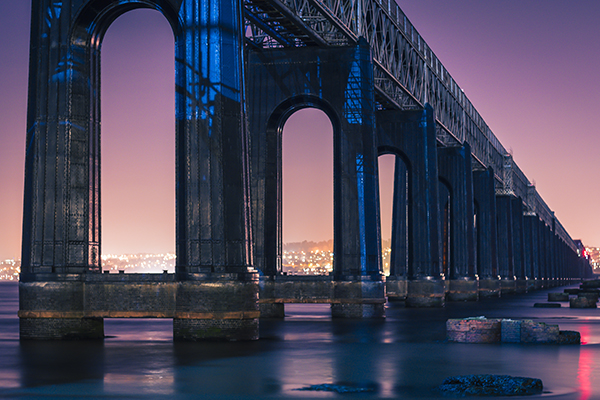The relation between human rights and the arts is not obvious. Human rights are commonly understood as a set of internationally agreed norms and standards, covering economic, social, cultural, civil and political rights. But human rights are more than a legal instrument – they are a powerful moral notion associated with the idea human dignity and, as such, are capable of galvanising artists and the common citizen alike.
In the western public imagination, human rights are usually associated with violations and abuses that happen to distant others who may face war, tyranny or persecution.
Political leaders often refer to human rights issues when they want to justify policy measures, for example, in debates on migration, armed conflict, children’s issues, poverty, and sexual and reproductive health.
Human rights demand that governments meet certain obligations and adhere to certain standards when dealing with people. They are a powerful ethical idea and moral notion.
Sociologist Nick Stevenson (2014: 193) argues compellingly about the need for careful thought on how ‘to promote a culture of human rights through more educated forms of dialogue and concern’. Such dialogue can offer critical standards and judgments that embarrass and question those that have political and economic power (Stevenson, 2014: 182) and, can help ensure that human rights standards are adhered to.
Our view is that the arts play an important role in the creation of a culture of human rights. They enable the common citizen to engage with ideas about what constitutes a human and decent life, and they create conditions that allow the citizen to develop a sustained care and commitment to struggles against abuses and violations of human dignity.
The Leicester Human Rights Arts and Film Festival, a yearly initiative with which we have been involved, offers a springboard to discuss how a grassroots festival has become a site where shared ideas of human rights and human dignity can be imagined. Unlike museums which tend to invite contemplation, arts festivals have, as Monica Sassateli (2011: 16) puts it, a ‘living’ dimension, and are characterized by more democratic and participatory forms of public dialogue and aesthetic experience.
Festivals create informal spaces for sociability, debate and criticism that are akin to Jugern Habermas’ earlier model of the public sphere as a culture-debating public that involves convivial discussion among individuals and committed group activities.
The Leicester Human Rights Arts and Film Festival encourages active participation, inclusivity and a sense of community at a time when much public debate on human rights issues has shifted to online spaces such as social media platforms like Facebook and Twitter.
The festival brings people together and features poetry, music, film, panel events and discussion on human rights issues at home and abroad. Most of the participants are local to Leicester, Leicestershire and the East Midlands. Some are active on the national or international scene. For example, we have had a politician who sits in the House of Lords speak alongside local academics and activists. We have also had a medical doctor, working in an informal refugee camp in Greece, take part in the festival via Skype.
The festival presents a series of events that are free and open to all and is held in publicly accessible spaces like pubs, halls, libraries, and at the University of Leicester, among other places.
In addition to creating a platform through which people can engage with human rights issues, the festival also draws attention to Human Rights Day (December 10), by focusing on a different issue on the day each year. This year (2019), we are looking at Artificial Intelligence and human rights. Last year, the focus was the challenges that people who are looking for refuge face when they try to access higher education. In the years before that (and in years to come), the focus was (and will be) on a different issue each time.
One important way in which the festival actively nurtures a culture of human rights is by encouraging audiences and participants to share critical ideas, possible solutions, and examples of good practice drawn from lived experience or from their professional areas of activity. Another way is by dispelling the idea that human rights violations only happen in distant world sites. For example, in 2017, we hosted a film screening and panel discussion around visual artist and filmmaker Isabel Lima’s film, Broken Chords Can Sing a Little – Episode 1: The Birds which addressed the displacement and housing crisis asylum seekers and refugees have been experiencing in Middlesbrough.
We would like to suggest that, by creating spaces of cultural dialogue around human rights and the arts in Leicester, the festival is contributing to the creation of a culture of human rights that makes it possible to imagine better and fairer collective futures.
Related articles
-
Changing how we see heritage can help us build back better
Becca Antink
How the heritage sector is making a difference in local communities.
-
Blog: I love Dundee
Jamie Cooke
I love Dundee. It’s funny, but even in the world of today where Dundee is vibrant with the development of the V&A and waterfront, its status as a UNESCO City of Design and top place in our very own Heritage Index for Scotland, this is a statement that can be met with a range of responses ranging from ridicule to incredulity, especially in the Central Belt of Scotland.
-
Blog: Something old, something new - a case study in building a community
Andy Gawin Warby
How do you convert an old, derelict space into something fit for the modern day, and build a sustainable business model around it? Read how one Fellow and group of committed local residents did just that in Camden.



Be the first to write a comment
Comments
Please login to post a comment or reply
Don't have an account? Click here to register.